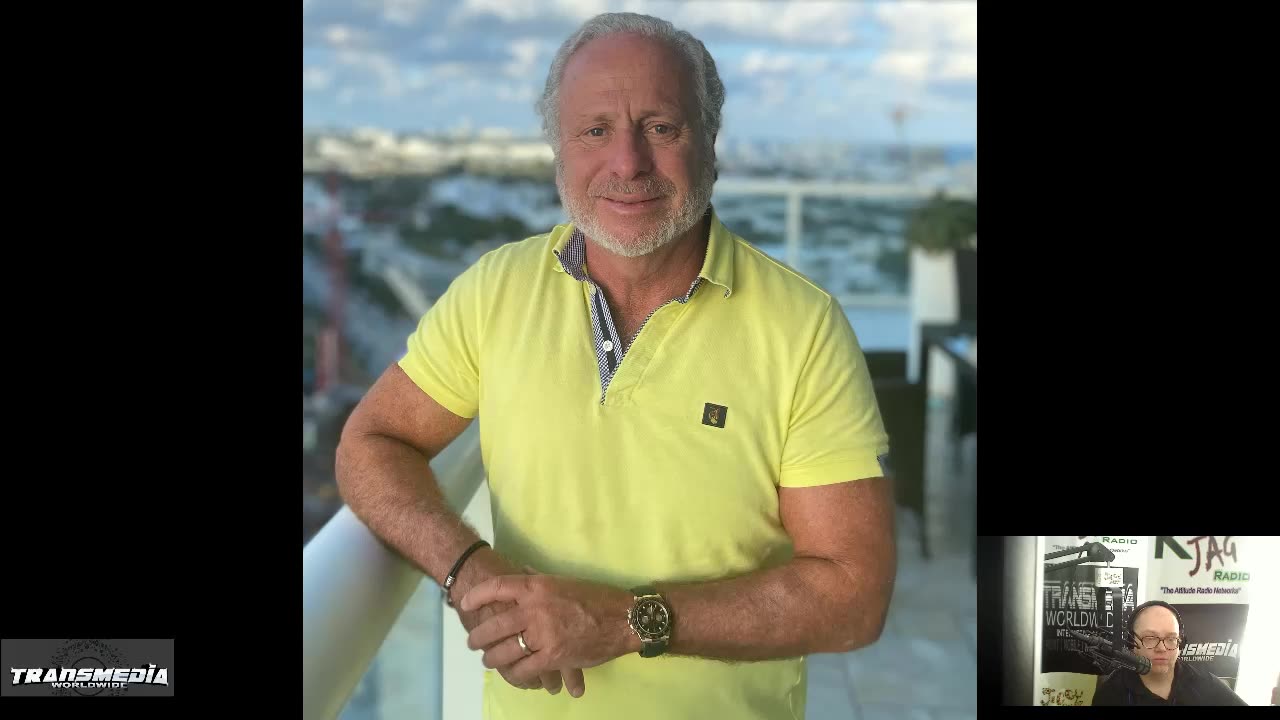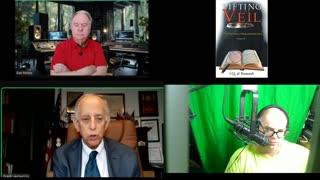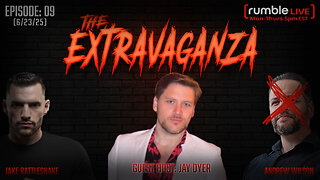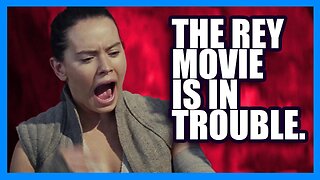Premium Only Content

Trust is a Double Edged Sword Author
Jeffrey Meshel has owned and run numerous business ventures, including three real estate
companies that are each over 35 years old. He is also a business book author who has been
featured on The Today Show.
He is co-founder / managing partner of Candor Capital Partners. He is also is a partner with, and
co-founder of, LUX Miami.
Candor Capital is a real estate acquisition platform that also originates short-term bridge loans
secured against commercial/residential properties. Its current portfolio consists of commercial
properties rented by medical companies, industrial properties and residential multifamily.
LUX Miami is a high -end luxury car dealership and rental business based out of Miami, Florida.
Formerly, Meshel was the founder and CEO of Paradigm Capital and Paradigm properties,
chairman and founder of DIVORCEFORCE, a web-based community that empowered people
affected by divorce.
Meshel served on the Board of Directors of Signature Bank for 15 years. Mr. Meshel is on the
board of the CPR Foundation (Community Police Relations). He is also the founder and
chairman of the Strategic Forum, a high-level networking organization.
He is the author of One Phone Call Away....Secrets of a Master Networker, The Opportunity
Magnet, and Trust Is A Double-Edged Sword…Trust Me.
Meshel splits his time between South Beach and New York City.
Jeffrey Menshel
Trust Is A Double-Edged Sword: Trust Me
Q & A
1) What events prompted you to writing, Trust is A Double-Edged Sword…Trust Me?
Unfortunately, I experienced a terrible trust violation and I felt my story had to be told. I
discovered my business partner, David Kushner, was a crook and even worse a sociopath.
Aside from massive thievery, sabotage and being a pathological liar. He also was a forger
and had four fake names I now know of that he used to perpetrate malicious acts. I had to
shut down my company and unwind its operations. I was terribly affected and literally
had to take medication to reduce my blood pressure. I got very angry at myself because I
was remiss and ignored many warning signs. Kushner got arrested in 2017 for harassing a
basketball coach that wasn’t giving his son enough playing time. He created a fake
email address and the sent the email to the coach, the coach’s wife and the school he
worked at. Whatever it said was scary enough that coach went to the police and they were
able trace the origin of the email to Kushner’s house. This is just one example of many
bizarre actions he did.
2) Why did you write the book? What do you to accomplish with it?
Writing the book was cathartic and I started learning so much in my research.
Unfortunately, trust on a macro level is at an all-time nadir in the world today. My goal is
to empower the reader to become more aware about trust in their own life to mitigate
mistakes and make better decisions. Trust is a double edged -sword. What does really
mean to you? Do you trust your partner? Do you trust the representations of what you are
being sold? Do you trust your own decisions? Do you trust what others tell you? Trust is
vulnerability—- it means accepting the sincerity and truth of what someone says, whether
spouse, friend, business partner, boss, salesman, colleague or even offspring.
3) How can one trust a business, a friend or an intimate partner when there are so
many liars out there? Ronald Reagan said it, “Trust but Verify “. In an ideal world there
would be implicit trust and if that trust is violated the connection will be terminated
which provides the motivation to behave with integrity. A store that has money back
guarantee is an example of integrity that reinforces trust and credibility. My crooked ex-
partner is currently being sued at least ten different parties, including me. He has no
credibility. You have to do your homework and always go with your gut feeling.
4) What can we look for to spot untrustworthy people? They believe their own lies.
What is amazing is that they perceive themselves in ways that are just not true. When you
come across people who appear detached and don’t recognize the true consequences of
their acts and behaviors, it’s a definite indicator that they are attempting to construct a
false world that corresponds to their wants rather than the reality of their actions. People
who are untrustworthy have an incredible knack of accusing others of activities that they
themselves are in engaging in. Untrustworthy people breach confidentiality. This is a red
flare over the bow. In addition, they lack empathy, are perpetually pessimistic about other
people’s achievements and talk behind your back.
5) How do you spot a liar? Lying starts very early. Babies will actually fake a cry. By
the time we enter the work world, we are breadwinners, and we are accosted by spam,
fake digital friends, partisan media, ingenious identity thieves, world class Ponzi
schemes— add all this adds up to a deception epidemic. There are quite a few things that
flag one who is a liar.
- Body language liars are known to freeze their upper bodies when they are lying.
- We think liars don’t look you in your eyes. In fact, they look in your eyes a little too
much.
- Smiles are supposed to evoke sincerity, but a lie spotter can detect a fake smile.
- A deceiver is withdrawn, looks down, and lowers his voice. He often pauses, and his
movements are herky-jerky.
- Another element to watch for are off-key patterns of speech. Studies show people who
are overdetermined in their denial often resort to formal rather informal language.
- Attitude is probably the most overlooked most telling trait; truthful people are generally
cooperative and helpful.
Liars intentionally distance themselves from their subject using stock phrases,
superfluous expressions, or overstatements.
6) How do you know to trust your decisions? Do you vacillate? If you say no, I will
call you out. You aren’t telling the truth. Having doubts about meaningful decisions can
be exhausting. Go with your gut most of the time and learn from bad decisions. Do you
trust yourself? Of course, you do accept when you don’t. I am sure if you replay the tape
of your life you can think of instances where you had to make a decision and did or didn’t
because you didn’t trust yourself. Consider obese people 60% of our population is obese.
Do these people like the way they look? Rhetorical question! More important that they
put themselves in harm’s way to get diabetes, fatty liver disease and/or a heart attack. I
would argue they don’t trust themselves and shouldn’t trust the decision to keep over
eating.
7) How much misrepresentation is there by companies selling their products?
Unfortunately there is no shortage of stories about companies that sell their products
marketing them with false attributes or are just dangerous. Some of these stories are
funny but many are not. Consider sun tan lotion in 2019, EWG group released a report on
the best and worst sun tan lotions. The worst ones are the ones we all know and are
situated in the front of drug stores. The good ones you never heard of. Recently Banana
Boat suntan lotion was pulled from the shelves due to cancerous ingredients. Fakespot
analyzes ratings for Amazon, TripAdvisor, Yelp and Walmart to determine which
product reviews are not real. And while each site is trying to combat fake reviews, it’s
almost impossible to manage them in real time. About 70% of the reviews on Amazon
are not real. One disastrous and scandalous analysis of supplements sold at GNC, Target,
and Walmart found that four of five products didn’t contain the ingredients they claimed.
The examples of misrepresentations are endless.
8) What foibles/ character flaws should be warning signals toward trust and
friendship? The first that comes to mind is to avoid people who are takers. Takers only
care about themselves and are very self-centered. As an example, a taker/friend who only
talks about himself and has a deaf ear if I bring up anything about myself. He personifies
the word vainglorious. I describe him as a guy who lives in a room where all the walls are
mirrors. Stay away from friends that show signs of jealousy. Some warning signs are:
Your friend tries to belittle your success. Your friend starts to avoid you suddenly. Your
friend constantly judges you. Your friend always talks about himself or herself and
doesn’t acknowledge what is happening in your life. Anyone who doesn’t support you
emotionally or who disappears in a time of need isn’t a true friend.
9) What are some extreme examples where you should ask yourself do you trust
yourself? During World War 11 the Japanese drafted pilots and asked them to volunteer
for suicide missions. These pilots were called Kamikazes. The military designed planes
for the purpose of crashing into targets, and during these attacks, the pilots sacrificed
their lives. Imagine that your son enrolls in the Air Force, and he comes to say good bye
to you because he is going to kill himself in his next mission. What would you tell him?
Can you fathom the absurdity of fulfilling this order? There other crazy examples like
this one. Hara-kiri is a ritualized method of suicide. Rather than being captured, a
vanquished swordsman would stab himself in the stomach, drag the blade to the right,
and pull upward. It was meant as atonement for the defeat. This act was thought to win
back some measure in honor in defeat. I don’t know. Self- disembowelment seems
somewhat harsh to me. Trusting yourself should me doing the right things for yourself.
10) You also endured a messy divorce that hurt your children what happened there?
Messy is a euphemism. My ex-wife hired and fired 20 different matrimonial attorneys. I
had one through the whole process. My ex used my kids as pawns. One time after not
having access to my kids for six weeks I ran into them with their mother at a beauty
salon. My ex was getting a pedicure and she started screaming at me. I went over to my
son to kiss him on his forehead and he backed away saying to me Mommy said we are
not allowed to kiss you anymore. This was a stressful moment
The matrimonial process is flawed and broken. Its very nature is a conflict of interest.
Matrimonial attorneys make money by charging for their time so they exacerbate matters
to have filings go back and forth. I wanted to get it over as quickly as possible
11) Why is it important for children to develop good trust habits? Children are very
vulnerable and are influenced immediately by their parents. I’ll speak for myself in it that
I came from a dysfunctional youth. My parents got divorced when I was 5, remarried
each other when I was 15 and then got divorced again when I was 25. When I was 4 years
old, I was kidnapped. My mother became a severe alcoholic and ultimately killed herself.
My dad became broke. I remember as a kid watching tv family shows asking myself why
can’t my life be like this. Fortunately, I edified and built myself. I was lucky. Many
children coming from disfunction become self-destructive. How parents and the
environment children grow up in is critical for their emotional well-being and developing
good trust habits.
12) Is trusting the way we look good or bad? Our physical beauty in many cases is a
big advantage and other cases a disadvantage. Consider models become famous and earn
a lot because they are so physically attractive. Physical looks open up doors, make people
popular and in some cases facilitate success. Many people become obsessed with their
physicality and appearance; in some cases, it can turn into an illness. What happens when
physicality becomes the primary criteria for recognition? Is that good or bad? Can you
trust the recognition as being sincere? How does this affect us emotionally? Do people
lose motivation to develop other skill sets because they are physically attractive? What
happens as you get older and your looks change? I think the answer is I would rather be
physically attractive than not, but make sure you have more dimension than what you see
in the mirror.
13) Can we trust technology? The advancements in technology Is amazing and very
enabling. All of our lives are enhanced by what technology does for us. However, there is
a flip side that is dangerous. Both Elon Musk and Bill Gates have articulated they are
fearful of artificial intelligence. As brilliant as A.I. is in the wrong hands would be very
dangerous to mankind. Consider social media and all the platforms that exist and
immediacy that something can go public and what are the ramifications? Do you know
what a Deep Fake is? A few months ago, there was a segment on 60 minutes on this
topic. The technology enables anyone to recreate fake physicality or news stories that
could cause riots or even commence a war. On that 60 Minutes segment it was reported
that our government is very concerned about the possibilities. The bottom line is
technology we have today can be enabling in both a positive and negative manner.
14) You pride yourself as a big networker and matchmaker in business. How can
you refer someone to someone else when know it is hard to attest anyone? I am the
way I am and I am proud of it. That said I do use discretion when I make introductions in
that I have a good visceral sense. Sometimes I make introductions by saying I don’t know
the person I am introducing you to so caveat emptor but my gut is you both have
synergies. When I do make introductions, I have to like the person as is the first screen,
then they have to be impressed as to who they are and what they do, so there are filters. I
have written two books on networking that is who I am.
15) Is ego your best friend or is it dangerous? Yesterday I was brilliant, so I wanted to
change the world; today I am sagacious so I am changing myself. Turn your ego into
your ally. Ego can be one of the worst poisons. Yet we do react to things too often
because of our ego. Can we rely on making decisions, deciding what we say, or taking
positions because we trust and comply to the direction dictated by our egos? We don’t
think about ego in this context, or for that matter in any context. We don’t think about
ego at all, do we? A big ego pushes people away. People driven by their ego are usually
critical of those around them and become trapped and are alone in their own selfish
opinions. We may damage personal connections, business relationships and friendships if
we let our ego take control. So, do you trust your ego?
The 10 Commandments Of Trust
“The breadth of trust is fundamental to everything in life,” says Jeffrey Meshel, the author of the
groundbreaking book, Trust Is a Double-Edged Sword: Trust Me. Below are his edicts that
should influence your thoughts and decisions of trust.
1. Follow Your Gut Feeling Carefully
Your instincts are usually right. If you have a bad feeling about someone, run the other
way. If you feel positively predisposed towards another, still be wary and don’t let your
guard down.
2. Face The Music!
If something seems wrong in a relationship, it is. Don’t ignore that feeling. Confront
violations of trust, or it will get worse – and you will pay a punitive price.
3. Verify What You Want To Buy
Do not trust sales or marketing pitches. Do your homework and check consumer reports
and product claims. Avoid being lazy about what you purchase, especially as it relates to
money, health, and items that alter your life.
4. Et Tu, Brute?
Keep your awareness sharp and take nothing for granted. Don’t overshare, for absolute
trust is never absolute. Friends can screw you over. To lie is to be human.
5. Do Not Always Trust What You Are Told
Magic is the only honest profession. Magicians promise to deceive and trick you – and
they do. For everyone else, get references. Research them. Look for consistency,
sincerity, and vulnerability.
6. Trust Your Decisions!
Do not equivocate. If you feel uncertainty, do something about it and don’t look back.
7. Never Disclose Personal Information On Social Media
Artificial intelligence, hackers, lawyers, and con-artists will raid the internet for anything
that gives them a strategic advantage to manipulate, steal from, or prosecute you.
8. You Must Be Able To Trust Yourself
Be honest with yourself and others. Figure out how to trust in your decisions and in the
way you interact with others.
9. Trust Beliefs, But Trust Knowledge More
Facts over feelings. We are products of our environment and of influences that
manipulate our passions and behavior, often based on vulnerability, ignorance, and
prejudice.
10. Do Not Forsake Trust
Trust is healthy and empowering. Integrity is everything. Trust in yourself and be much
more aware and accountable to yourself.
Trust 911: The Warning Signals
In Jeffrey Meshel’s illuminating book, Trust Is A Double-Edged Sword: trust Me, he explores
the role of trust in our lives and shows us how to examine our own trust worthiness -- and to spot
the liars amidst us. Below are eight trust-warning signals that he implores us to be aware of:
1. “Trust Me.” I’ve Got Your Back.”
If the person who says this is being true, there’s no need for him to convince you. Red
lights should go off immediately upon hearing these phrases.
2. Non-Verbal Communications
Hand fidgeting, face touching, leaning away, or crossing one’s arms may be indicators of
untrustworthiness. Someone who can’t look you in the eyes while speaking signals lies.
A person too intently staring into your eyes as though trying to compensate for something
may also be full of crap.
3. Wishy-Washy Language
Hedging statements and not speaking confidently and indicators of a lack of faith by them
in their offerings.
4. Uncomfortable Conversation
If people feel trust, conversations are marked by ease and friendliness. With distrust, a
person might always keep interactions short, avoid personal topics, or avoid providing
you wit nay specifics about what you want to know.
5. Too Many Questions
Constantly questioning someone close to you is a sign to rethink the relationship.
6. Not Trusting Yourself
Lack of self-confidence, missed opportunities, loneliness and even social anxiety are the
results of self-sabotage. They indicate a lack of self-trust.
7. Trusting Too Quickly
Real trust comes over time and with experience. You are best off starting with an open
mind and extending trust to people as they build a track record with you. But don’t get
lazy. Always verify.
8. Look For signs That you Have Trust Issues
You overthink about how someone will betray you.
You avoid commitment.
You don’t forgive the smallest mistakes.
You are excessively wary of people.
You feel lonely and depressed.
You distance yourself from others.
You are overly protective.
Your relationships are shallow or superficial.
You fear becoming attached.
Signs of Untrustworthy People
Excerpted from Trust Is A Double-Edged Sword: Trust Me
They believe their own lies. One of the most remarkable characteristics of untrustworthy people
is that they perceive themselves in ways that are just not true. When you come across people who
appear detached and don't recognize the true consequence of their acts and behaviors, it's a
definite indicator that they're attempting to construct a false world that corresponds to their wants
rather than the reality of their actions.
They project behavior onto you that you are plainly not displaying. People who are
untrustworthy have an incredible knack of accusing others of activities that they themselves are
engaging in or considering.
They breach confidentiality. When agreed upon, confidentiality is a sacred bond. Once
breached, there is no second chance. There is zero hope for trust when there is no respect for
confidentiality. This is a red flare over the bow. People who breach confidences are emotionally
unpredictable.
Untrustworthy people often experience mood swings, impulsivity issues, volatile emotional
polarizations, and other issues of mental health.
They have zero empathy. Failing to exude compassion and empathy when something horrible
happens is a quality that murderers hold. However, this character flaw can also be found
in untrustworthy people.
They are able to rationalize being untrustworthy by diminishing the impact, pain, damage,
or inconvenience they cause others. This is their most dangerous behavior. Worse, those who
really lack empathy are either unaware of their lack of empathy or are selectively compassionate
when it suits their goal. It’s all about them, really.
They are unfavorable. They are perpetually pessimistic about other people's achievements. If
someone talks badly about everyone around them, chances are they'll do the same to you
when your back is turned. Their enmity will begin to grow.
They are two-faced. The moment you leave the room, they start spreading rumors about you or
harshly criticize you in front of others, despite the fact they had just told you how amazing you
are.
They live in denial. Untrustworthy people live in their own worlds and justify their behavior and
actions.
-
 22:42
22:42
The Jiggy Jaguar Program
12 days agoFrank Vernuccio 6/10/2025
36 -
 LIVE
LIVE
BonginoReport
1 hour agoAlligator Alcatraz! FL AG Floats Solution To Illegal Alien Crisis - (Ep.75)
6,072 watching -
 1:05:07
1:05:07
TheCrucible
2 hours agoThe Extravaganza! EP: 09 with Guest Host: Jay Dyer (6/23/25)
66.1K11 -
 DVR
DVR
Kim Iversen
2 hours agoIsrael Increasingly Isolated — Trump’s "Truce" With Iran Raises New Questions
24.5K36 -
 16:30
16:30
Clownfish TV
2 hours agoStar Wars Just Put Rey in a Corner...
1201 -
 LIVE
LIVE
RalliedLIVE
1 hour agoMonday WZ - Specialist Addict Gets Wins
128 watching -
 38:24
38:24
Kimberly Guilfoyle
3 hours agoDecision Points: Latest News with Roger Stone | Ep232
82.3K26 -
 41:29
41:29
Redacted News
2 hours agoThis pilot whistleblower exposed a child trafficking ring and what happened next is STUNNING
48K39 -
 LIVE
LIVE
Spartan
2 hours agoPro Halo Player | Sens Crisis Grind | Ranked Arena, Probably SWTOR at some point
168 watching -
 LIVE
LIVE
Jamie Kennedy
20 hours agoReacting to Satanic Protests, Wild Arrests & Internet Meltdowns
75 watching